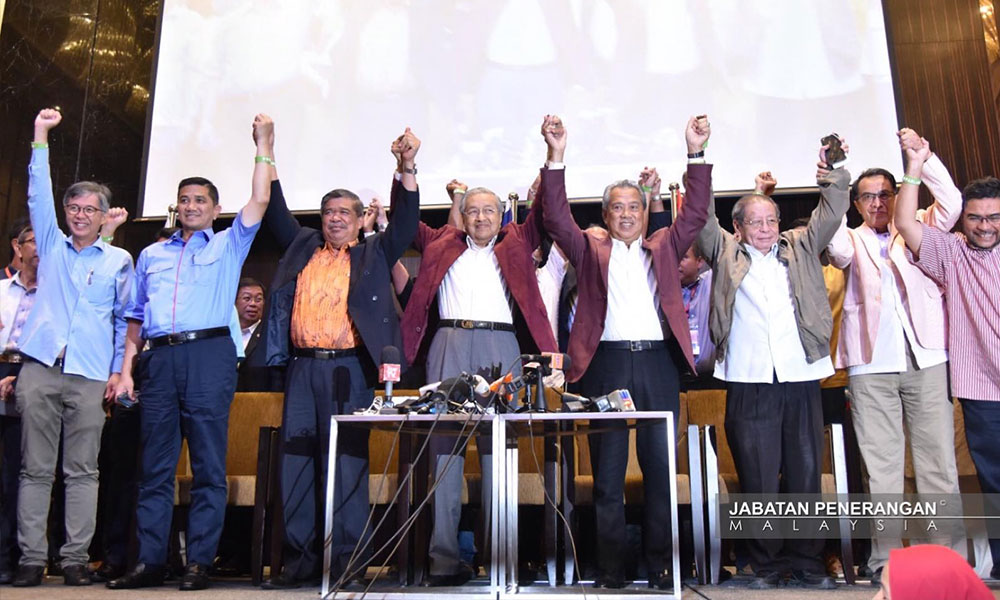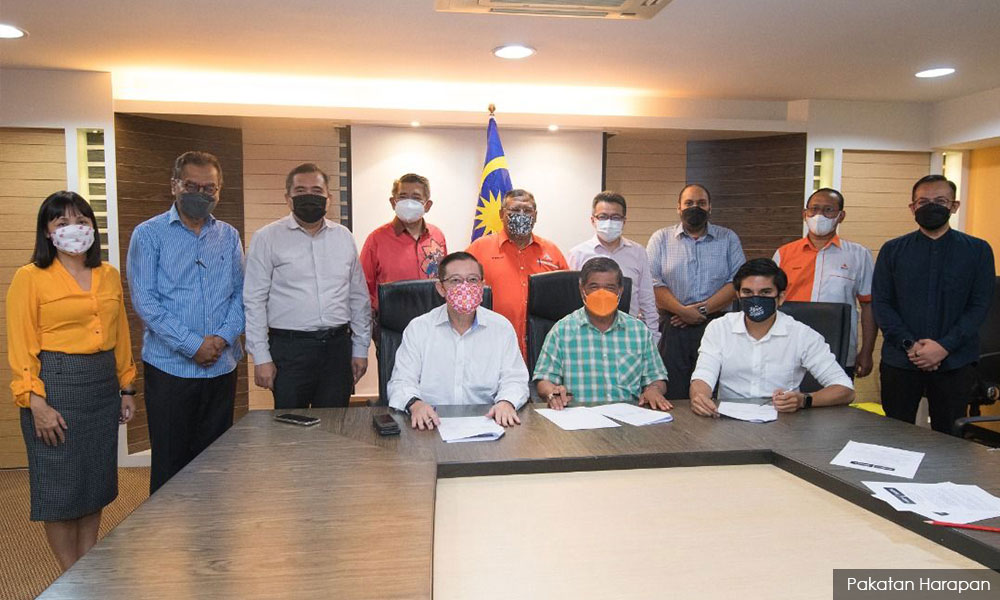ADUN SPEAKS | The real problem with Pakatan Harapan
ADUN SPEAKS | What is the real reason for Pakatan Harapan's consecutive election defeats? It is not the low voter turnout, it is not the short campaign period, it is not because we were unable to organise talks.
It is not because the opposition votes were spilt and it is not the issue of a common logo. All the above are just characterisations. The fundamental problem is the loss of the traits of institutional and political reform.
If we do not search for these traits, it will be difficult to cross the base.
Harapan, BN, and Perikatan Nasional each possess some base voters who will come out to vote. It was BN that won with the largest base.
The 13 seats that Harapan+ (with Muda) won in Johor were all won with 40 percent of the votes and above. This implies that these are the seats that can be won without the floating voters.
Looking back at the 2018 general election, the change of government and political reforms by Harapan inspired floating - passive voters outside the original parties' base - to come out and vote for them.
This allowed Harapan to gain enough votes to win additional seats.
When Harapan loses the characteristics of political reform, it is like discovering a potent medicine for serious illness just to realise that it has no healing properties. This cannot appeal to floating and passive voters who helped win the extra seats.
When a potent medicine becomes a vitamin, it becomes as unnecessary as any other nutritional product for many of the customers who had been buying it enthusiastically. Hence, only the base customer remains.
No active reforms when in govt
In the 22 months of Harapan’s rule, the federal ministers and state executive members who hold executive power have done a great deal to improve policies.
The backbenchers have also done a great deal to promote them, reflecting the diligence of most of the leaders of Harapan. However, there was no active and effective implementation of institutional reforms.

The people voted for Harapan for a change of government and political reformation. This is to say, Harapan must rule with the purpose of serving the original intention of reform.
To be in power is not just to be the government, and it is better to not be the government without reformation.
When Harapan lost power, of course, the ideals of various policy reformation planned could not be realised.
However, at the same time, we must also admit that in terms of political reform, there were too many compromises and too little execution. That is very sad and regrettable.
For Harapan to have any hope of governing in the future, we must reclaim the traits of political system reform, restart and empower the political reform agenda in all areas, and promote lasting institutional reforms.
Political changes are like “form” and “potential”. The form does not change but the potential is always changing.
It is the structure of the voters nationally and in each constituency itself, for example, the proportion of ethnicity in a particular constituency, that will not change overnight.
Nevertheless, the floating and passive voters, who are less inclined to vote, are the "potential" we need to win over.
If we fail to win the potential, then we will not win the additional seats. And if we do not have additional seats, we will not have the power to govern.
Don’t follow trends, reform
We cannot passively wait for external forces, or "trends" as they are often called in politics. This will be like a kite that goes up and down with the wind.
We cannot choose political allies just to take advantage of the situation, because what is more important is the trait of unwavering political reform.

Therefore, Harapan needs to carry out a political reset with a political reform agenda. This is to set the direction, boost morale, look for new hope, and establish a New Pakatan Harapan.
Only by restarting the political reform agenda, and only by putting forward new hopes for political reform, the people can rekindle their confidence in the country's future and are willing to entrust the country's political and economic future to Harapan.
Harapan's performance during its governance has not been outstanding to the point where floating voters are particularly fond of and willing to stand up for us again.
Although this is because Dr Mahathir Mohamad, the then head of the Harapan government, was unwilling to make real reformation.
However, after losing power, Harapan did not declare its determination to reform, nor did it highlight its policy direction and characteristics centring on political reform, leading to its politics becoming increasingly ordinary.
The opposition parties have been fighting for decades to reform the political system.
The “New Pakatan Harapan” - New PH - needs to lead and restart with a political reform agenda.
CHEW CHONG SIN is the Mengkibol state assemblyperson.
The views expressed here are those of the author/contributor and do not necessarily represent the views of Malaysiakini.
RM12.50 / month
- Unlimited access to award-winning journalism
- Comment and share your opinions on all our articles
- Gift interesting stories to your friends
- Tax deductable
